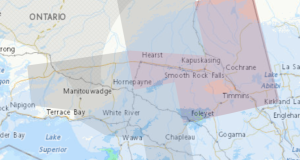When someone is suffering with a serious, incurable terminal illness – and looming ahead is further decline and symptoms, followed by death – palliative care provides relief. Now, following the Supreme Court of Canada’s recognition of Medical Assistance in Dying (MAID) as a constitutional right, people who find themselves in this situation have an additional option to manage their suffering. MAID allows doctors and nurse practitioners to help patients with terminal illnesses to end their lives after a thorough assessment of their health. Like palliative care, MAID honours patients’ wishes and relieves suffering.
We all will experience death, and some of us will experience an unpleasant death with varying severities of pain and symptoms. This can be managed well through palliative care, and in most situations this is adequate. But MAID is an option for people whose quality of life has been reduced by their terminal disease, people who want to end progressive pain, symptoms, and treatments coming their way before death.
Dr. Mike Leckie and I are two physicians in North Bay who have been offering assisted-dying since the federal government passed Bill C-14 in June 2016. The legislation gives eligible patients the option to request medical assistance in ending their lives – and gives doctors and nurse practitioners the legal right to provide the service.
Patients requesting MAID must be assessed by two independent physicians or nurse practitioners to determine their eligibility for the service. Physicians and nurse practitioners are the only medical professionals who can assess for eligibility, or prescribe or administer MAID.
The first MAID case I performed was for a lady who was suffering and deteriorating. She could no longer do anything she valued and did not want more medications or palliative sedation. The day of her passing, she wore her best silk pajamas. Her hair was fixed and she had her makeup on. She got into her bed with her favourite song playing in the background. She said her final farewells, spoke softly about playing with her grandchildren by a brook in the woods, and she went to sleep. It was, by far, the most beautiful death I have witnessed in my 31-year career.
In the first year that the federal law was in effect, around 20 people in Northeastern Ontario chose a medically assisted death.
“In May, my husband, who suffered from terminal cancer, asked for medically assisted death,” said Helen Eng. “He was a proud, competent man with an unwavering optimism about life. He wanted us to remember him like that. We did. In the final hours with him, we had sadness and tears – but joy, peace, and laughter too. He made sure of it. He was surrounded and supported by the love of his family and friends. He was thankful. He had a serene smile when he said his final goodbye. It was a meaningful ending to a life well-lived.”
MAID is one more possibility for patients who are dying and feeling they’ve lost control of their lives. Over 90 per cent of people with terminal and advancing illness who request MAID do so not for pain and symptom management, but for existential angst. Patients get an emotional release and reassurance when they know that this is an option for them. I’ve seen patients cry with relief. Whether they proceed or not, a weight is instantly lifted off their shoulders.
Currently, in the region, there are ten doctors and nurse practitioners registered to provide MAID – and a number of clinicians who choose not to.
There remains concerns about the number of providers being able to meet the demand. My priority for the NE LHIN is to build up the capacity to offer the service as quickly as possible, by training more clinicians to provide MAID. I’ve been working with the province for changes that will make MAID sustainable over the long-term. As a result, the NE LHIN will be the first site to provide provincially funded MAID training to interested physicians and nurse practitioners this fall. The training will take place in Sudbury September 29.
I would ask clinicians contemplating offering this service, to witness a MAID passing and see for themselves what a meaningful experience it is. I believe this is one of the most important services that can be offered to a suffering, dying patient and their family.”
Facts:
- May 31, 2017, the province established a Care Coordination Service to assist patients and caregivers in accessing additional information and services for MAID and other life-ending options. If people want to be connected with a physician or nurse practitioner who can provide Medical Assistance in Dying – call 1-866-286-4023 or TTY: 844-953-3350.
- In Ontario, more than 500 people have chosen a medically assisted death since the law took effect in June 2016.
- To be eligible for assisted dying a patient must be at least 18-years-old, be capable of making health care decisions, have a serious and incurable medical condition, be making a voluntary request for the procedure, and give informed consent.
- Once MAID eligibility is medically confirmed and documentation is completed, a 10-day period of reflection is mandated by law.
- MAID cannot affect life insurance – and MAID is no longer a mandatory coroner’s case, it is a coroner’s notification.
- For more information on MAID visit this link.
- Winter Road Conditions – Friday, November 7th - November 7, 2025
- SE OPP – Wawa Driver Charged with Posession & Driving while Prohibited - November 6, 2025
- SE OPP – Wawa Driver Charged with Impaired Driving - November 6, 2025
 Wawa-news.com You can't hear the 'big picture'!
Wawa-news.com You can't hear the 'big picture'!
